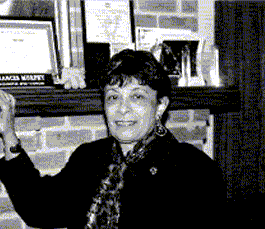Page 39
[Begin Tape 1, Side A]
Ingersoll: Could you explain to me, before we go a little further, the relationship between the Afro-Americans of the various cities? Was there a national edition, at least at one time, and then the various city editions? What was the relationship, and did it change through the years?
Murphy: I think in the early beginning we had just the Afro-American.
Ingersoll: That was Baltimore, right?
Murphy: That was in Baltimore, where it was founded. From the early beginnings, the Afro was sold on the streets in Washington. There were certain people who would come and pick up the paper and take it to Washington. Then they started what was called a Washington bureau. Many newspapers have Washington bureaus. They started a Washington bureau. We had our own press, and so what they would do would be to change the front page on the Afro. Instead of being the Afro-American, it would be the Washington Afro-American.
Then they purchased the Richmond [Va.] Planet and opened a Richmond office. They opened a Philadelphia office and a New Jersey office. Each time they opened a new office, they would take the basic paper, which we would call at that time "Nine Star."
Ingersoll: What was that?
Murphy: Nine Star edition. That was the (national) paper that they would print on—I think it was Sunday night, and that was what in those days was the basic Afro-American. This is the one that if you lived in California you would receive. The one if you lived in the Midwest, you asked for a subscription, you would get the national Afro-American.
From that Afro-American, we did basically what many newspapers do today. The body of the newspaper would stay about the same, and they would change a couple of pages in the newspaper and make them local pages and change the front page, which means you've got a wealth of national news in your home newspaper, and then you've got your local news, too.
I can remember memos where my father would say to an editor, "You can have so many pages this week for your local news." But we had a certain number of pages—say, the Supreme Court decision—that those pages would remain what we call intact, and you were supposed to pick those pages up. Those were "must" pages for every single edition, which means it ran across the chain. But you, as an editor in, say, Richmond, would have control over your front page and your second page and your social page. You'd have one sports local page, because Sam Lacy wrote the national sports. We had an international page, which fairly well remained the same. The church page always was local. Your "Kids Talk" page was local, because, of course, you had to relate to the school children in your area. And that's the way it went.
Ingersoll: Does the Afro still operate that way today?

